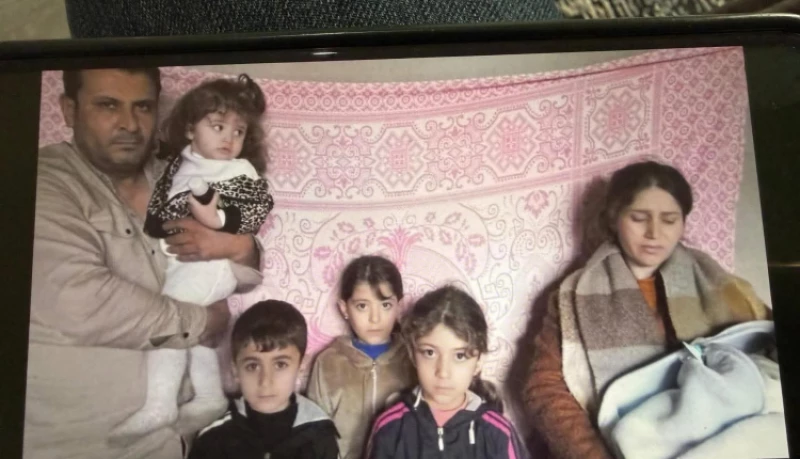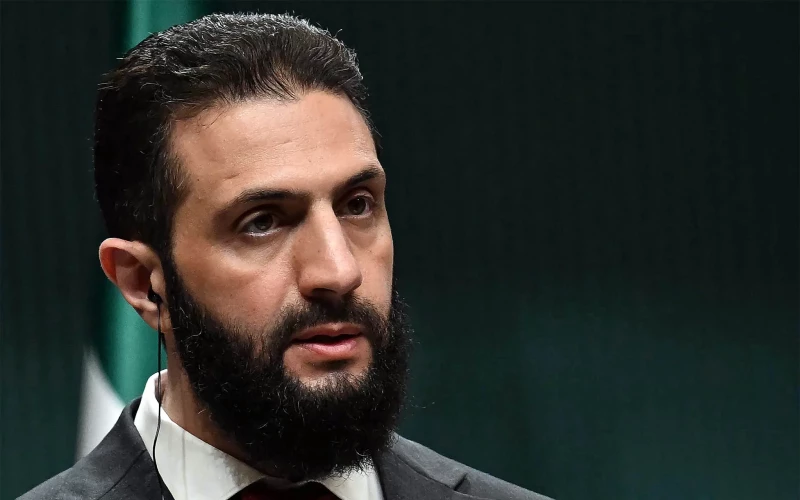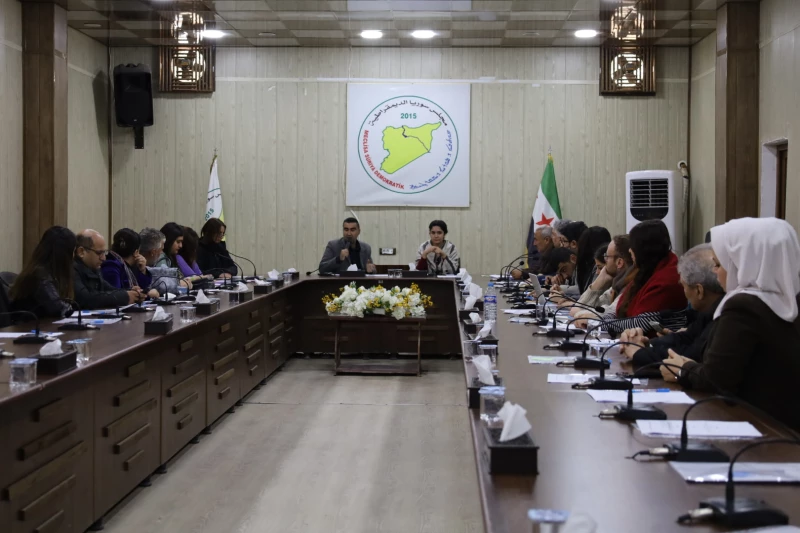ERBIL, Kurdistan Region of Iraq - Mazloum Abdi, commander of US-backed, Kurdish-led Syrian Democratic Forces (SDF), which controls a quarter of the north and east of Syria, on Sunday described the toppling of Bashar al-Assad as a "historic” moment.
"In Syria, we are living through historic moments as we witness the fall of the authoritarian regime in Damascus,” Abdi said in a post on social media platform X.
Abdi said, "This change presents an opportunity to build a new Syria based on democracy and justice that guarantees the rights of all Syrians.”
After nearly two weeks of a sweeping offensive, the Syrian Command of Military Operations (CMO), spearheaded by Hayat Tahrir al-Sham (HTS) announced on Sunday that Assad fled the country and they entered the capital city of Damascus, calling on Syrian refugees abroad to return to “a free Syria”.
“Damascus is free of the tyrant,” the rebel factions said on Telegram.
"The tyrant Bashar al-Assad has fled" and "we declare the city of Damascus free", the opposition factions said, adding that "after 50 years of oppression under Baath rule, and 13 years of crimes and tyranny and (forced) displacement... we announce today the end of this dark period and the start of a new era for Syria.”
Ahmed al-Shar'a, also known as Abu Mohammed al-Julani, leader of the HTS, which led the major military campaign against the Damascus government that started on November 27, ordered their forces not to approach official institutions in Damascus, saying they would remain under the prime minister until an official handover.
"To all military forces in the city of Damascus, it is strictly forbidden to approach public institutions, which will remain under the supervision of the former prime minister until they are officially handed over," Shar'a said in a statement on Telegram.
The rapid advance and takeover of Damascus came only hours after the opposition factions declared they had controlled the city of Homs, a third major city seized by the rebels after Hama and Aleppo. Anti-government groups on Saturday dealt another major blow to Assad’s regime after seizing control of the towns of Daraa, Suwayda, and Qunaitra.
Like many other parts of Syria, Kurds across the northeastern regions of the country poured into streets celebrating the end of the 24-year rule of Assad and half of a century of the Baath party.
Footage and images circulating across social media showed people in Qamishli destroying the statue of Assad’s father. Hafez al-Assad ruled Syria from 1971 until his death in 2000.
The people of Hasakah also took to the streets of the city to celebrate the toppling of Assad.
Deir ez-Zor under control of SDF
War monitor Syrian Observatory for Human Rights (SOHR) earlier reported that the opposition fighters had been advancing towards Deir ez_Zor, days after the regime forces pulled out from the city and Kurdish-led SDF forces took over.
The SDF first-in-command rejected reports that they had withdrawn from the oil-rich eastern province.
"Our forces advanced to Deir ez-Zor to secure the area,” Abdi wrote on X. "We call on everyone to cooperate to maintain security and peace. We count on the role of the people and tribes to prevent chaos and protect the area.”
The US-backed Kurdish forces currently control the bulk of northeastern and eastern regions of Syria, amounting to a quarter territory of the country. Formed in 2015, the SDF is considered the Kurdish de facto army in Syria.
Abdi told reporters over the weekend that they had not "made any decision to fight against” anti-government opposition forces, nor do the anti-government forces plan to fight the SDF.

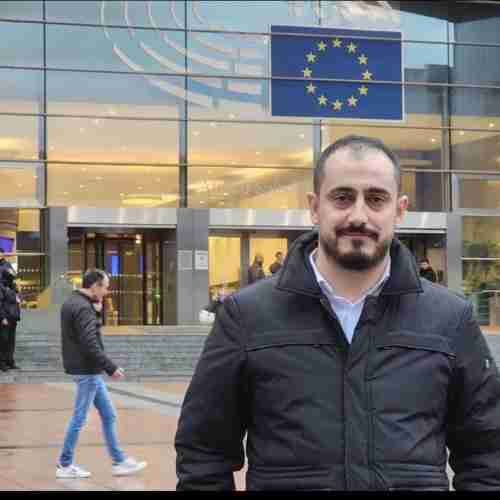
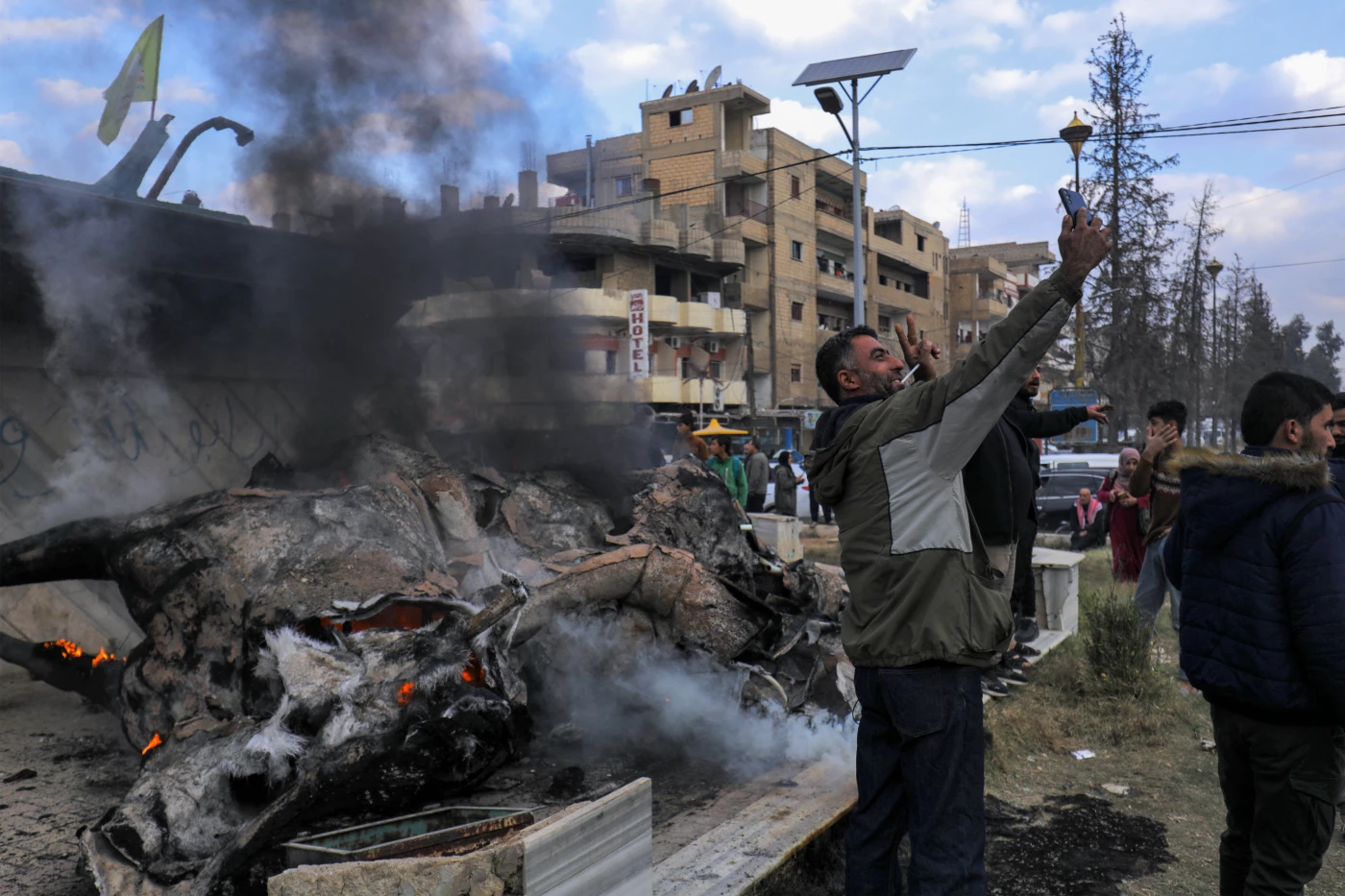
 Facebook
Facebook
 LinkedIn
LinkedIn
 Telegram
Telegram
 X
X
